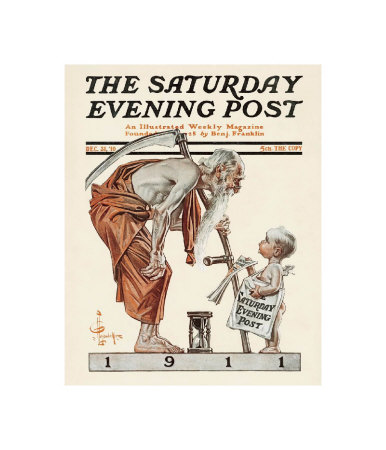Background Passages: I Corinthians 13:1-13; I Corinthians 1:4-7; 3:1-2 and I Corinthians 12
Thankfully, I never experienced it.
A friend of mine in college was majoring in electrical engineering. His roommate never seemed to get up in time for that dreaded 7:30 a.m. English class. The snooze button on his alarm was his favorite friend.
Desperate, the roommate asked my friend for help. The future engineer purchased one of those cymbal clanging monkey toys and, with expertise beyond my capability, rigged it up to a clock and the light switch across the room. Then, every morning at the appointed time, the monkey would crash its cymbals incessantly until the roommate got out of bed and turned on the light.
Ingenious and diabolically annoying.
I think the arrangement lasted only three days before the monkey and its cymbals were found in pieces in my friend’s bed like the horse head in The Godfather. Message sent and received.
As I said, thankfully, I never had to experience it. I would not have lasted three days. There is a reason you never hear a cymbal solo in the band or orchestra. A cymbal by itself is just noise.
After Paul founded the church in Corinth, he moved his base of ministry to Ephesus. While spending a couple of years in that city, Paul began to hear disturbing reports about the divisions and factions developing in the church in Corinth. He eventually received a letter from the congregation asking for clarity on a number of issues the divided church faced. Paul penned a response (I Corinthians) designed to instruct and encourage a gifted, but fractured group of people who failed to shake the influence of the dominate culture.
Paul recognized that God gifted the people in Corinth to do the work he required of them, telling them they had been “enriched in every way…in all your speaking and in all your knowledge…” and that they “do not lack any spiritual gift…” (I Cor. 1:4-7) Yet, he admonished them for growing no deeper in their faith and understanding over the years.
“Brethren, I could not address you as spiritual but as worldly…mere infants in Christ. I gave you milk, not solid food for you were not yet ready for it. Indeed, you are still not ready.” (I Cor. 3:1-2)
Their shallow understanding of God’s teaching and an egotistic application of their giftedness, split the church. Paul recognized that the people of the church had grown little spiritually over the years. They took the basics of faith taught by Paul and did little to deepen their understanding. They still thought and behaved as spiritual children.
There is a richness to the Christian faith that makes living the life of Christ a process…a necessary investment of time, study and the lifelong application of our experiences with God that challenges our faith and dares us to dig more deeply into his truth.
What I knew of God’s word as a 9-year-old boy who just accepted Christ should not be the same as what I know almost six decades later. Any deeper understanding of God’s teaching requires effort on my part, the desire to learn from his word, from his revelation and through the private rebellions and the personal restorations I experience as a child of God.
Life compels us to ask the question. From the moment we accepted Jesus into our hearts, have we grown in our understanding of what God desires of us? Are we gnawing on the meat and bone of God’s word or are we still drinking the milk, with a stomach unconditioned for the deeper truths.
The lack of personal spiritual growth in the Corinthian church led to a great many issues Paul tried to address. He wrote to them about their struggles with sexual immorality and marriage and their insistence on personal rights that caused others to stumble in their faith. He spoke to them of worship and how to make the ordinance of the Lord’s Supper meaningful.
Then, in I Corinthians 12, he provided a powerful lesson about using their individual giftedness to benefit the work of the church rather than glorifying the gifted.
“God has combined the members of the body and has given greater honor to the parts that lacked it, so that there should be no division in the body, but that the parts should have equal concern for each other. If one part suffers, every part suffers with it; if one part is honored, every part rejoices with it. Now you are the body of Christ and each one of you is a part of it. (I Cor. 12:24b-27)
How do you act as one body in Christ, each benefiting from the gifts of the other? Paul answered the question in the “most excellent way.”
“If I speak in tongues of men and angels and have not love, I am only a resounding gong or a clanging cymbal. If I have the gift of prophesy and can fathom the mysteries and all knowledge, and if I have a faith that can move mountains and have not love, I am nothing. If I give all I possess to the poor and surrender my body to the flames, but have not love, I gain nothing.”
Resounding gongs. Clanging cymbals. Screeching clarinets. Paul says the spiritual gifts God shares with his people will grate on people…will annoy to the point of distraction and division… will cause them to close the door to the faith we practice…unless those gifts are grounded and used in the love of Christ.
Loving others as Christ loves may be the greatest mark of our spiritual maturity, particularly in a world in which hatred and division rules and agape love is in such short supply.
As Paul told the Corinthian church he tells us what that love looks like.
“Love is patient. Love is kind. It does not envy. It does not boast. It is not proud. It is not rude. It is not self-seeking. It is not easily angered. It keeps no record of wrongs. Love does not delight in evil but rejoices with the truth. It always protects, always trusts, always hopes, always perseveres. Love never fails.”
The deeper we dig into God’s word…the more we imitate the life of Christ…the more we begin to understand how loving one another in Christ lets us see the needs of those around us with selfless clarity.
Love is everything this world is not. When our words and actions do not reflect the kind of love Paul describes, we are little more than clanging cymbals…spiritually inclined, but annoying and hollow sounding.
The Corinthians needed to learn that the things in which they took pride would fade away. They needed to understand that love reigns supreme. As gifted as we may be, as great as our faith and hope are, love is greater. Theologian William Barclay said, “Faith without love is cold. Hope without love is grim. Love is the fire which kindles faith and love is the light which turns hope into certainty.”
Until love waters our souls, the roots of our faith and hope will never stretch deeper into God’s truth. We will miss every opportunity to shine God’s light into the darkness. Paul knew it was the missing piece in the Corinthian church.
God knows it is one piece of our lives that can keep us from fully experiencing God’s blessings and from extending God’s grace to a lost world.
I don’t know about you, but I needed to hear that word this week.
“And now, these three remain: faith, hope and love. But the greatest of these is love.”

